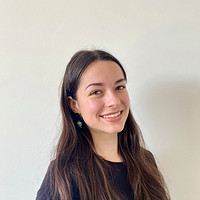Miguel from Spain: "I'm incredibly thrilled to have landed in the International Business programme at Saxion."
Miguel comes from Spain and studies International Business at Saxion. Before that, he studied Electrical and Electronic Engineering but chose to transition to International Business, a programme more fit for him.
What exactly do you study in International Business?
In my study programme International Business, I explore the complexities of global markets, analysing international trade, finance, management, and marketing strategies. I delve into understanding cross-cultural management, global economics, business law, and the intricacies of operating in diverse international environments.
Do you have a career plan, or a dream job maybe?
My career plan centres around expanding the company I'm currently building, which focuses on leveraging AI in business to enhance performance. Alongside growing this venture, I also aspire to pursue diverse objectives, such as engaging in community-driven initiatives, mentoring programs, or exploring sustainability projects.
I began at Saxion with the Electrical and Electronic Engineering programme, but soon realised it wasn't my passion. Despite the challenging journey, I'm incredibly thrilled to have landed in the International Business programme at Saxion. This unexpected turn has led me to a field that truly resonates with me, and I couldn't be happier to be studying in such a fantastic university environment.
What do you like the most about International Business?
My favourite aspects of this study programme are how well it aligns with my outgoing personality and fulfils my life aspirations. It allows me to delve into subjects that naturally pique my interest, creating a seamless match between my passions and the curriculum. The interactive and engaging nature of the programme complements my desire to learn in a way that feels intuitive and enjoyable.
My favourite aspects of this study programme are how well it aligns with my outgoing personality and fulfils my life aspirations.
What do you find the most difficult?
The most challenging part of transitioning from Electrical and Electronic Engineering to International Business was adjusting to the shift from clear-cut, right-or-wrong answers in engineering to the nuanced, subjective nature of social sciences. Embracing ambiguity and diverse perspectives was a significant learning curve. However, it taught me valuable critical thinking skills, encouraging me to consider various viewpoints and make informed decisions based on evidence and context.
What surprised you when you moved to the Netherlands?
Arriving in the Netherlands, the biggest surprise was the impact of the weather. Coming from the sunny Canary Islands, adapting to the Dutch climate was more challenging than anticipated. Additionally, adjusting to the work culture, which might differ from what I was accustomed to, was another significant aspect. The Dutch work culture might have its unique dynamics compared to other places. Furthermore, the cost of living in the Netherlands, especially for international students, can be overwhelming. Financially, it required careful budgeting and planning to navigate the higher prices in this country.
What does your student life look like?
I currently reside in Enschede, a city I've come to love for its vibrant atmosphere. During my free time, you'll often find me at the gym, unwinding with a coffee at Douwe Egberts café, or immersed in books at the Bibliotheek Enschede. I also frequent spots like Stoet and Frank & Charlie's for a cosy and enjoyable time. Enschede's lively university scene means I'm often around campus, engaged in various activities and soaking in the city's dynamic environment.
